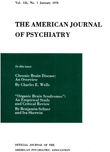THE PHYSICIAN AND THE FEDERAL NARCOTIC LAW
Abstract
Dr. Morris Fishbein in his introduction to a series of articles printed in the Journal of the American Medical Association in 1931 on the Indispensable Use of Narcotic Drugs, has presented to the medical profession some excellent suggestions dealing with the general professional use of narcotic drugs. If all physicians would accept and conscientiously follow these suggestions, which are quoted below, irregularities in prescribing and dispensing narcotic drugs by physicians would be reduced to a minimum.
The problem of narcotic addiction merits the attention of physicians for many reasons. The control by statute of the prescribing of alcohol, and the definite limitations of the amount prescribed, indicates that the medical profession must do everything possible to minimize the prescribing of narcotics in order to make unnecessary further restrictive measures. Physicians should give more serious consideration to the materia medica, pharmacology and therapeutics of narcotics.
Physicians may, by the exercise of more thought in practicing, do much to avoid censure in relation to narcotic addiction. They may substitute, whenever possible, non-habit-forming drugs in the place of morphine or other opium alkaloids. When narcotics are indispensable, however, as shown in this series of articles, no more should be administered than is necessary to achieve the desired end. Patients requiring daily administration should be seen often by the doctor and the amount of drugs ordered or supplied should not exceed that required by the patient until seen again. Independence of administration on the part of nurses should be strictly limited to prescription and any change in treatment should be in writing.
Access content
To read the fulltext, please use one of the options below to sign in or purchase access.- Personal login
- Institutional Login
- Sign in via OpenAthens
- Register for access
-
Please login/register if you wish to pair your device and check access availability.
Not a subscriber?
PsychiatryOnline subscription options offer access to the DSM-5 library, books, journals, CME, and patient resources. This all-in-one virtual library provides psychiatrists and mental health professionals with key resources for diagnosis, treatment, research, and professional development.
Need more help? PsychiatryOnline Customer Service may be reached by emailing [email protected] or by calling 800-368-5777 (in the U.S.) or 703-907-7322 (outside the U.S.).



